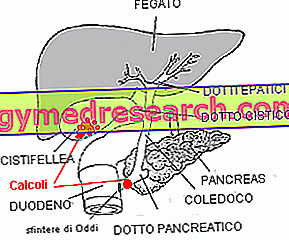See also: castor oil for eyelashes and hair
Castor oil is obtained from the cold pressing of the seeds of Ricinus communis, an arborescent plant belonging to the Euphorbiaceae family. The lipid content of the seeds is heavily influenced by environmental conditions and is normally between 30 and 50%. The protein content is also moderate (15-20%).

Castor beans also contain a toxic substance - a glycoprotein lecithin called ricin - which can cause vomiting, haematemesis, gastrointestinal bleeding, convulsions and arrhythmias, up to coma and death. The ingestion of a few castor beans (5-10) can be lethal.
The presence of ricin and another toxin, the alkaloid ricinine, strongly limits the use of the panel in the zootechnical field. For this reason the efforts of agronomists and bioengineers are focusing on the selection of species with a low content of toxins.
The castor oil has an erect, reddish-purple trunk, which enriches the landscapes of temperate and tropical areas, including Italy. The tree is cultivated - especially in India, China and Brazil - for the vast industrial use of castor oil, whose applications range from the pharmaceutical field (a constituent, called undecylenic acid, is known and used for its anti-fungal properties) to that of cosmetics, paints, plastic polymers and lubricants. However, one of the most well-known properties of castor oil remains the laxative one. Its irritant action, which on an empty stomach is carried out within 30-120 minutes from ingestion (interval necessary for pancreatic lipases to digest triglycerides in monoglycerides and ricinoleic acid) produces a purgative effect within 6-12 hours, with the emission of profuse discharge of semi-liquid stools. Ricinoleic acid acts by stimulating the water secretion of the small intestine, thereby accelerating peristalsis. Since the increased intestinal transit causes the elimination of triglycerides not yet hydrolysed (digested), the laxative effect of castor oil is self-limiting. For this purpose, therapeutic doses range from 15 to 50 ml in adults and from 5 to 10 ml in children over two years; in both cases it must be taken on an empty stomach. Absolutely forbidden to use during pregnancy, since castor oil can cause violent uterine contractions.



